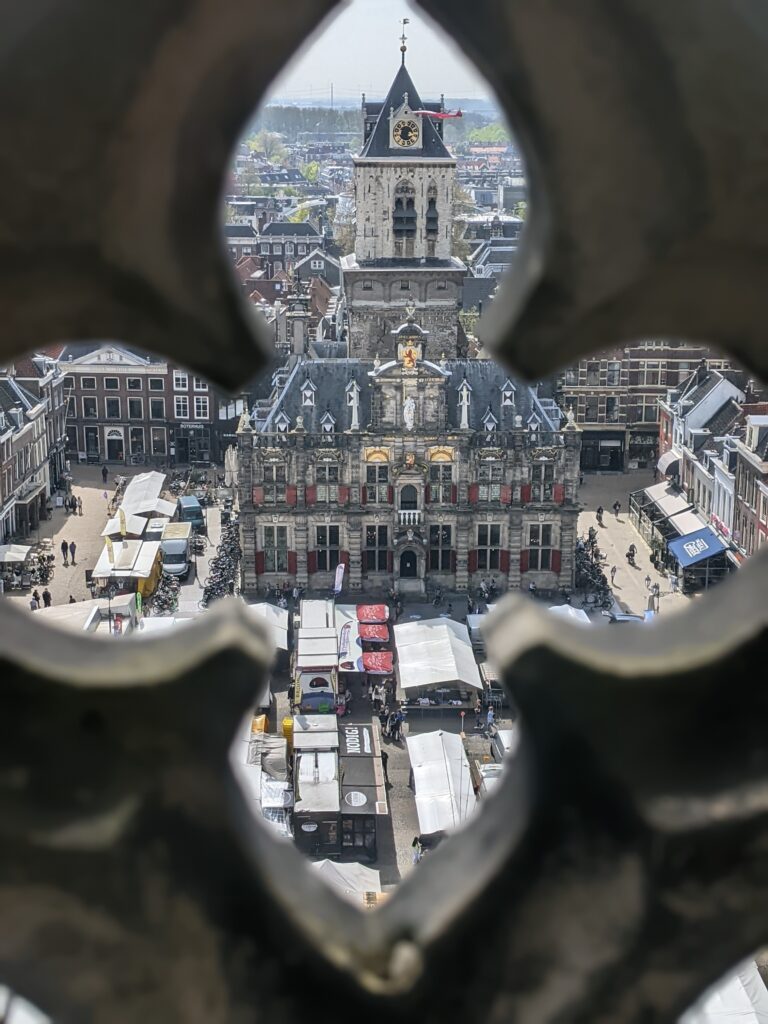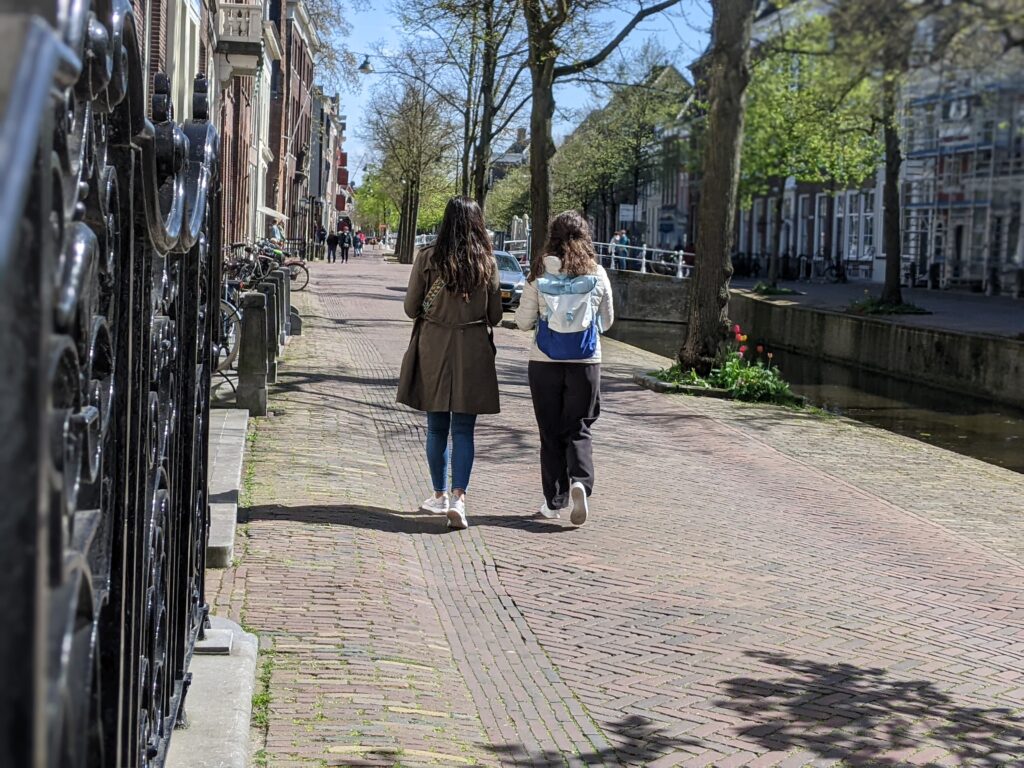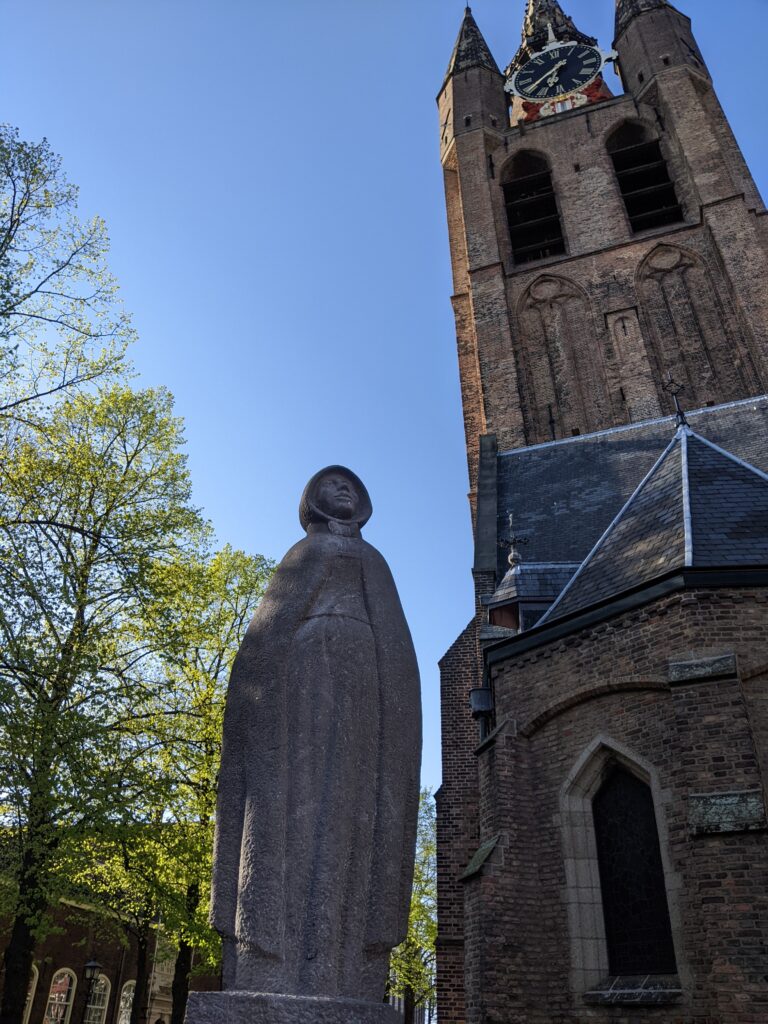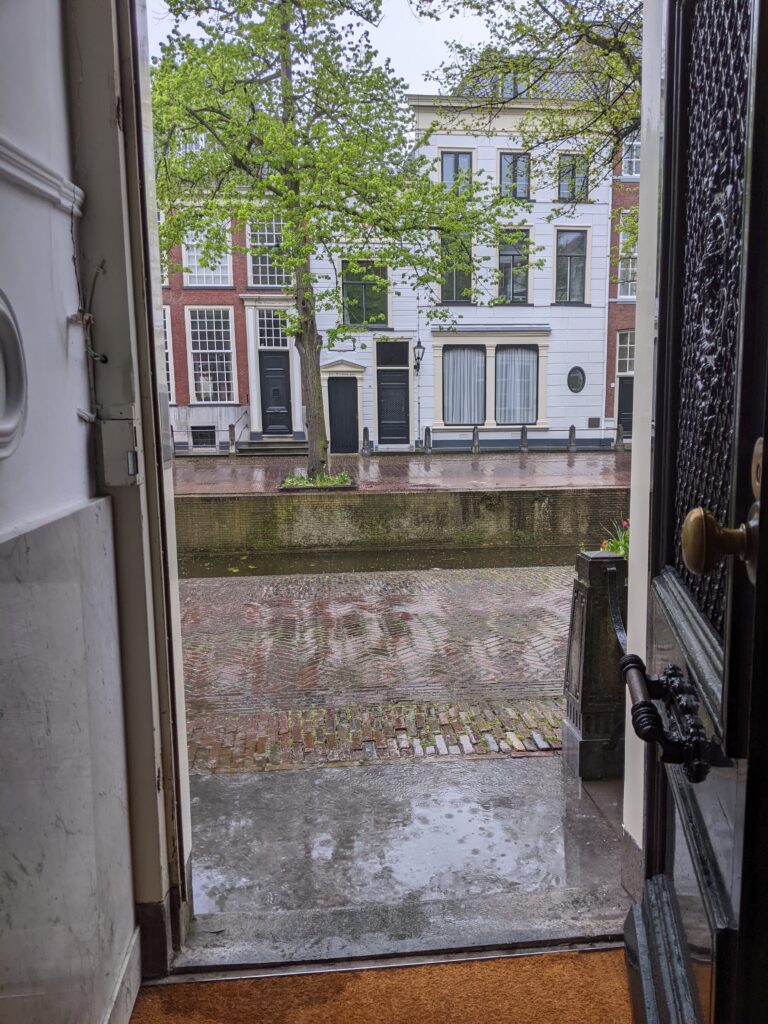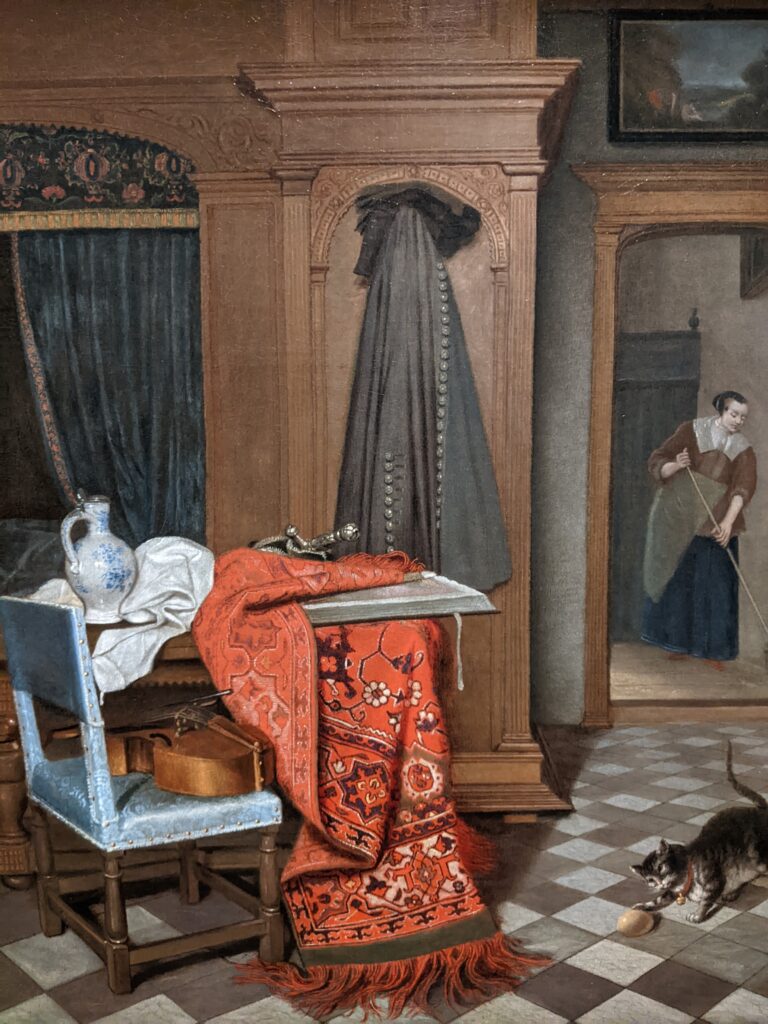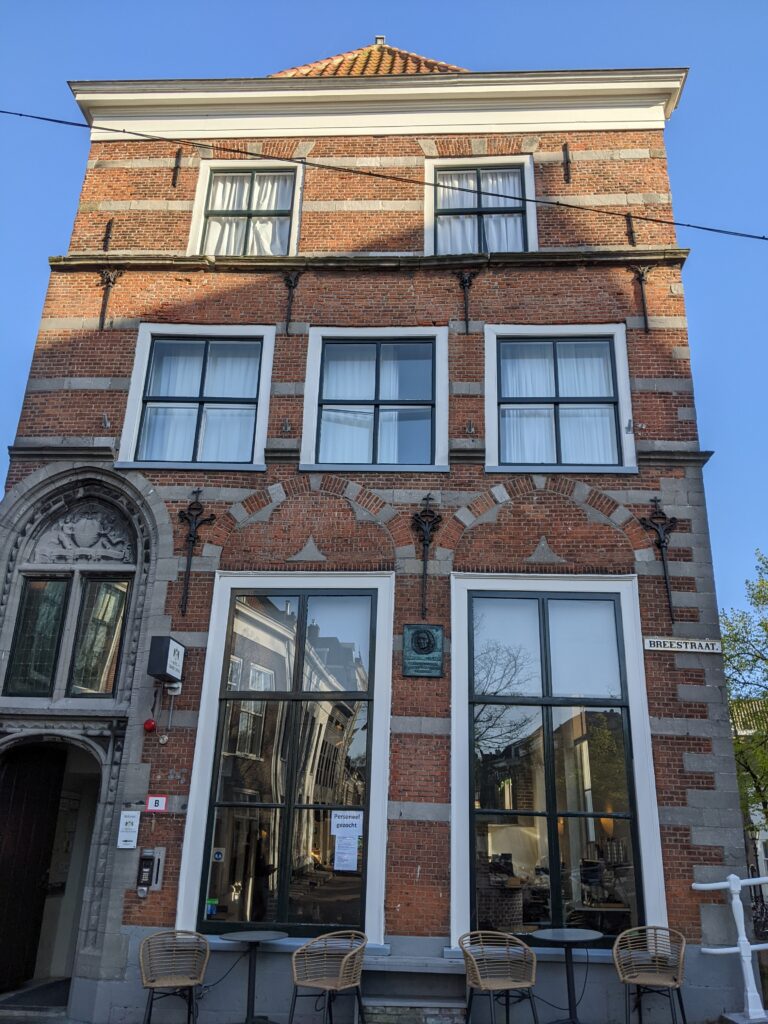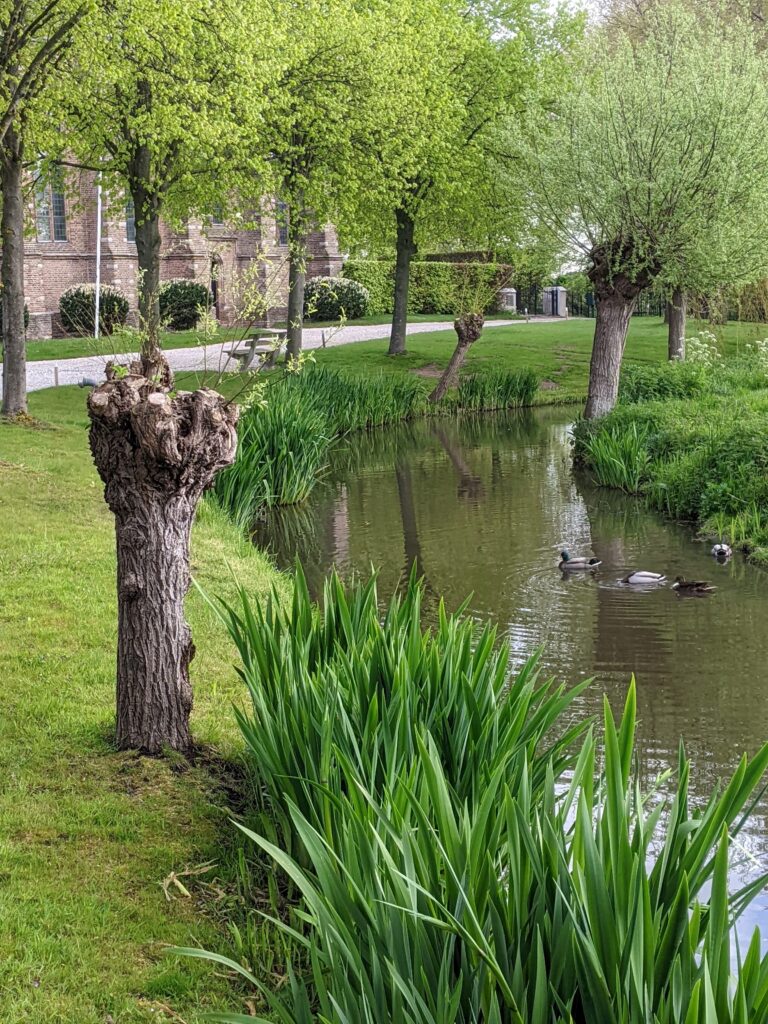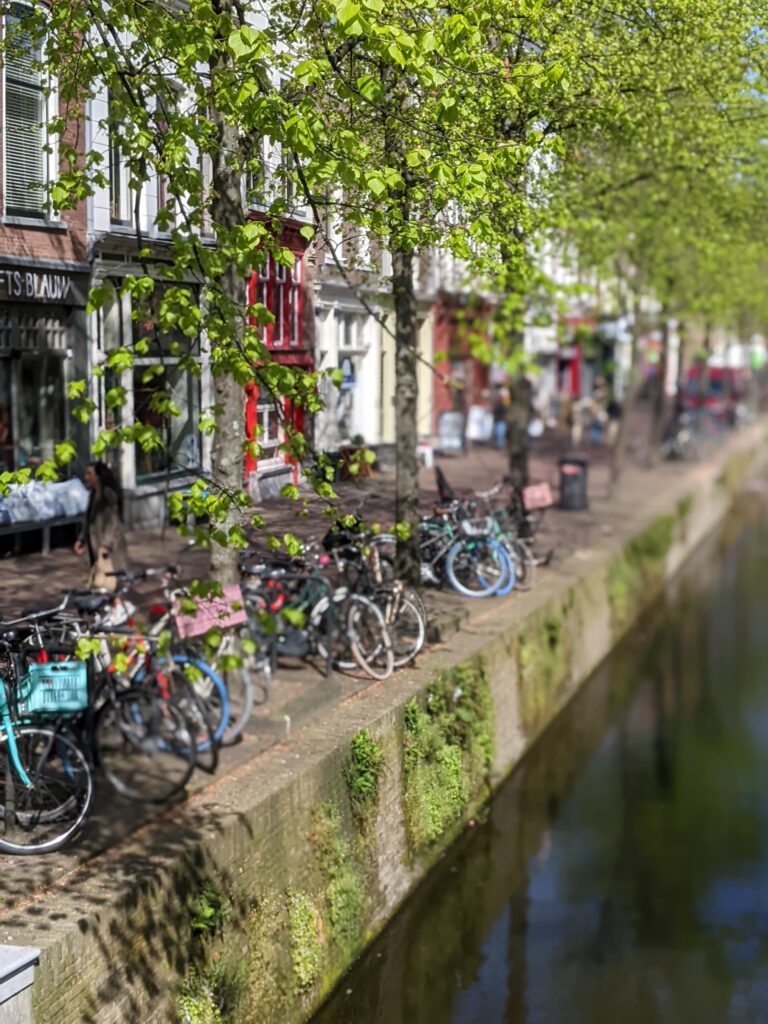Outside I hear the deep tolling of a church bell. The canal water lies dank and quiet below the window. The day is cool and still. Throughout the night last night I heard church bells every hour or two. Hearing this is a reminder that just as in most Muslim societies where the call to prayer is heard as you lay in bed, so too in Christendom until a century or so ago most people would hear church bells as a mellow accompaniment to their days.
Walking through the Prinsenhof Museum the other day and looking at the 17th century oil paintings of Delft, I was reminded of how much of modern Western man and woman and society was born in towns like this. The faces of the men and women looking out of the canvases are sallow from lack of sunshine (its northwestern Europe and the winter is long), but these are hard working and industrious folk. The cloaks on the backs of the men are luxurious and the hats on their head are comfortable and broad brimmed. They are made of beaver fur, killed in north-east America by fur trappers and shipped back to Europe. The household goods in paintings are luxurious and you can see many of these people are greedy for high quality objects. These are a materialistic people. They want it, they want to own it, they want to show it off. Some of this stuff is art. Oil paintings with side lighting into domestic interior scenes from this town are world famous thanks to the paintings of Vermeer. They are also a curious people. Astronomers look to the stars, anatomists look to the cadaver under their scalpel, geographers look to their globes, and biologists look to their newly invented microscopes (Dutch scientist Antoine van Leeuwenhoek designed high-powered single lens microscopes in the 1670s, he is from this town). Neighbourhood watch and local government takes the form of local militia staffed by men from wealthy families. The facades of the town houses of Delft are beautifully decorated and various, with irregular shaped gables, and symmetrically arranged sash window ornamentation. So Western Man is materialistic, greedy, curious, appreciative of beauty, well organised, and socially cooperative. You can see it all in the 1600s of a town like Delft. This is the kind of place where the modern West was born, with all of its positive and negative aspects. You can see it being born when you wander these streets and look at these old oil paintings.
Out in the countryside the next morning I could feel the touch of freshly cold air on my neck, a swan huddled in sleep by a ditch, green grass everywhere. This Arcadia is, like much of England, often marred by electricity pylons, freeways, car dealerships, and traffic. This not the Holland that Patrick Leigh Fermor walked through in 1933. Once you leave the old town of Delft, the countryside is not all hayricks and thatch. Still we found a little village off a road where the sound of traffic wasn’t as loud. And I crouched down and observed a paddling coot. The air was cold in my nostrils. I could smell the grass, and the mud. Earlier we had seen a heron in a ditch. I thought of Tennyson: these wet, mellow landscapes were ‘haunts of coot and hern’.
Vivian Stanshall’s words come to me sometimes here: “…changing yet changeless as canal-water, nestling in green nowhere….”
